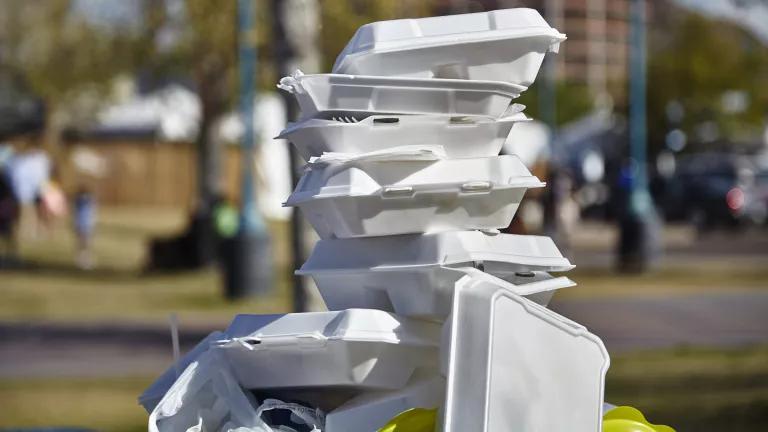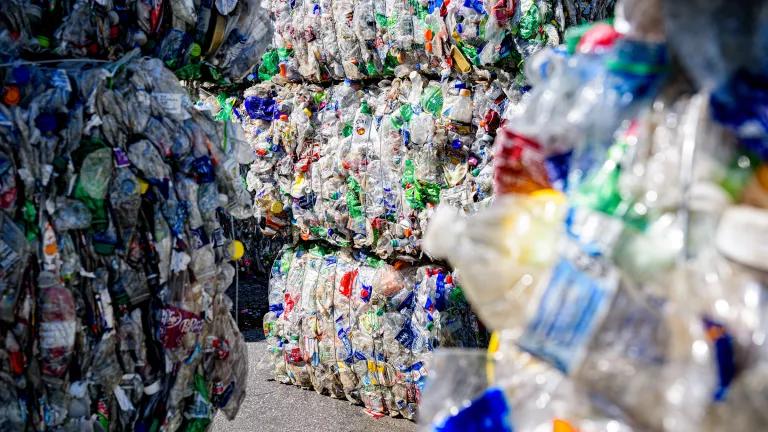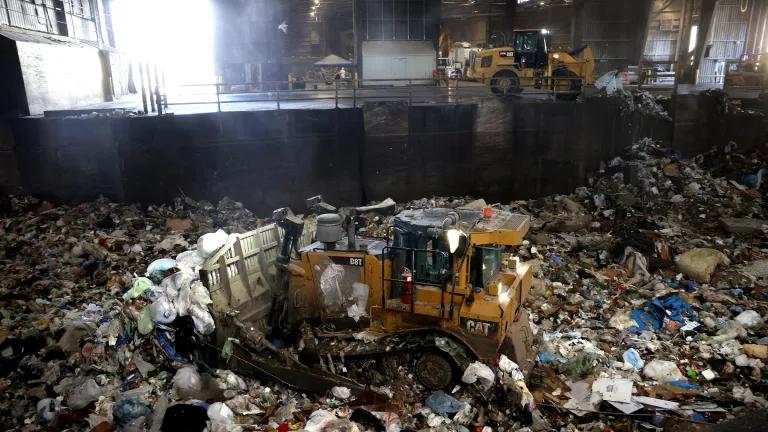240 Groups Urge Biden Administration to Take Bold Action on Plastic Pollution
Plastic pollution, the groups note, is linked to everything from infertility to cancer in humans to severe injury and death in wildlife.
WASHINGTON, D.C. – As negotiations for a global plastics treaty are scheduled to resume in Nairobi, Kenya, 240 U.S. environmental, public health, and other NGOs sent a letter to the Biden administration today calling for stricter limits on plastic pollution and a crackdown on toxic "chemical recycling."
“Plastic is taking a terrible toll on the environment, polluting rivers and oceans, and creating mountains of garbage in the U.S. and around the world,” the groups write. “Less visible but no less destructive is the creation of toxic air and water pollution, and generation of hazardous waste from the production and disposal of plastic posing serious health risks, particularly to nearby communities.”
“At the global level,” the letter continues, “if plastic were a country, it would be the world’s fifth largest greenhouse emitter,” citing the climate change impact of the production and disposal of plastic.
The groups are asking the Biden administration to take more proactive measures, including:
- Supporting a strong global treaty to reduce plastic production and immediately phase out the most problematic plastic materials, chemical additives and plastic products;
- Reject efforts to undermine bedrock environmental and public health laws, including the Clean Air Act, the Solid Waste Disposal Act and the Toxic Substances Control Act; and,
- Stop spending taxpayer dollars on government support for technologies to promote the production, use or disposal of plastic.
“As original peoples of the land, we have an inherent right to protect the environment, land, air, water and all creation,” said Frankie Orona, executive director of the Society of Native Nations. “We are the air. We are the water. We are the land. We are the environment. The Biden administration’s position on the global plastics treaty still fails to address the intergenerational harms that have been inflicted on Indigenous, frontline, and environmental justice communities by the petrochemical sector. As the world’s largest producer and exporter of plastic waste, the US has a moral obligation to confront this crisis at the root and push for a treaty that prioritizes public health and human rights over the interests of the plastics industry.”
“States are stepping up to build a future where children breathe clean air, drink clean water and are able to thrive without the threat of plastic pollution and hazardous chemicals they contain,” said Sarah Doll, national director for safer states. “In order to achieve this future, we need President Biden and the federal government to join in and take action to phase out the most toxic plastics, limit production, and stop supporting plastic waste disposal methods that generate toxic air pollution and hazardous waste. Communities deserve a just transition to a toxic-free, reuse-based economy.”
The proliferation of plastic waste around the world creates mountains of garbage that pollute our waterways. The plastic industries plan to incinerate plastic waste as their preferred method of disposal creates toxic air pollution and generates hazardous waste posing serious health risks, especially to environmental justice communities. Plastic pollution, the groups note, is linked to everything from infertility to cancer in humans to severe injury and death in wildlife. The tiny microplastics these products yield are suspected to pose digestive, reproductive and respiratory hazards to humans.
“The chemical industry’s big lie is that it can solve the plastic crisis by incinerating plastic waste. Anyone who has ever accidentally burned even a tiny bit of plastic on the stove knows that this is both ludicrous and dangerous,” said Daniel Rosenberg, director of federal toxics policy for NRDC (Natural Resources Defense Council). “Organizations from across the country are urging the President to direct the State Department, the Environmental Protection Agency, and other government agencies to reject the chemical industry’s toxic plastic agenda and instead adopt policies and implement existing laws to reduce plastic production and protect the public from toxic plastic pollution.”
Scroll below for additional resources.
NRDC (Natural Resources Defense Council) is an international nonprofit environmental organization with more than 3 million members and online activists. Established in 1970, NRDC uses science, policy, law and people power to confront the climate crisis, protect public health and safeguard nature. NRDC has offices in New York City, Washington, D.C., Los Angeles, San Francisco, Chicago, Bozeman, MT, Beijing and Dehli (an office of NRDC India Pvt. Ltd). Visit us at www.nrdc.org and follow us on Twitter @NRDC
Additional Resources

Problem Plastics Are Poisoning People and Polluting the Planet

240 NGOs to President Biden: Save People from Toxic Plastic

The Worst of the Worst: High-Priority Plastic Materials, Chemical Additives, and Products to Phase Out
